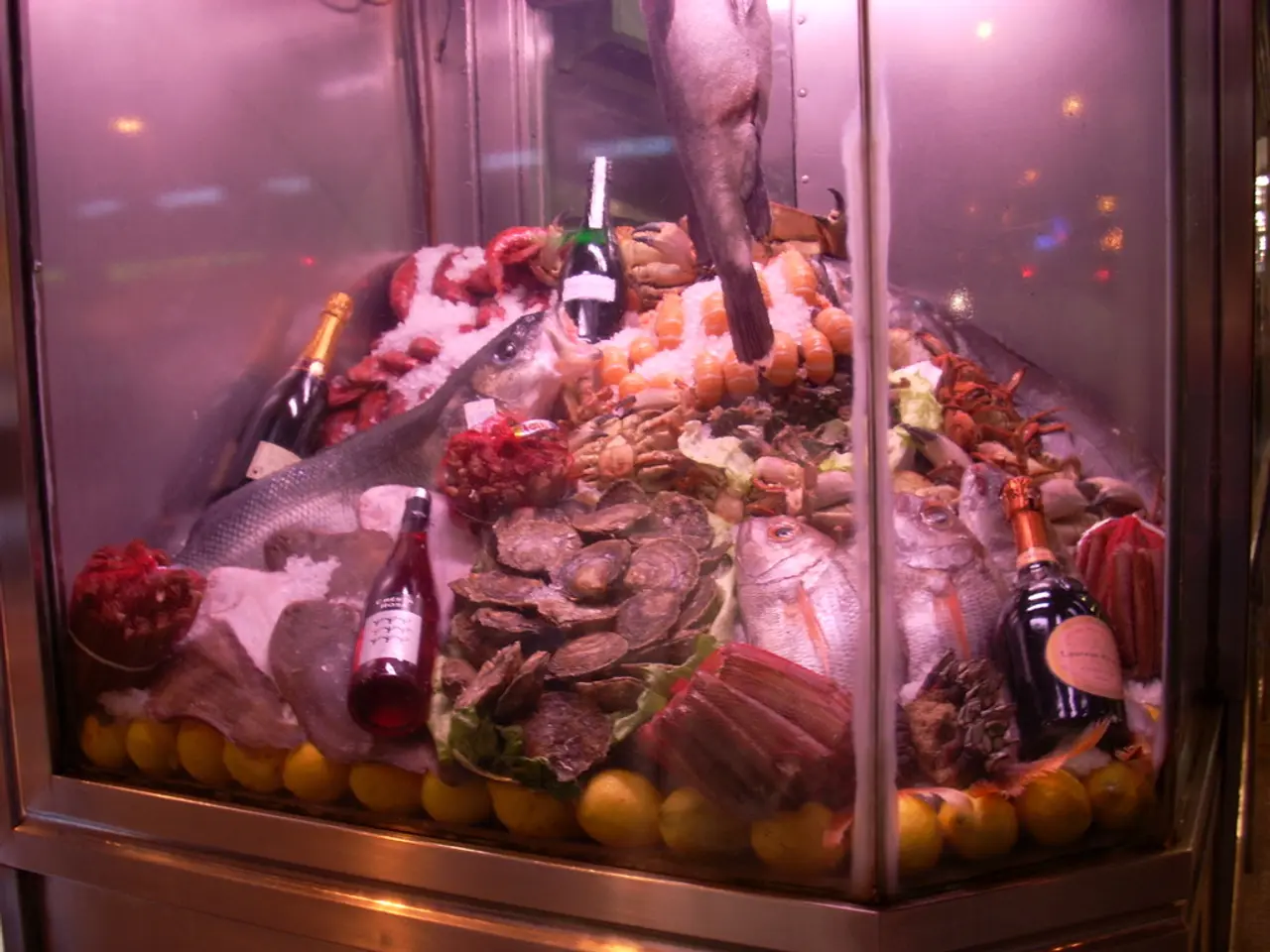Redfish isn't the prize catch when it comes to monetary value. Regarding health benefits, that's another story.
Fish, a staple food for many, is often a source of essential nutrients like omega-3 fatty acids. However, the way fish is farmed and caught can significantly impact its nutritional value and safety.
Fish farms often add antibiotics to the diets of artificially bred fish, such as salmon found in supermarkets. This practice can lead to these fish accumulating harmful substances like dioxins, mercury, pesticides, and others in their fats. In contrast, wild-caught fish generally have lower levels of these toxic contaminants, though mercury exposure varies by species.
While farmed salmon does have omega-3 fatty acids, these potentially harmful chemicals may offset the benefits. To compensate for the lack of omega-3 in salmon, salmon lovers should supplement their diet with omega-3 fatty acids found in vitamin complexes.
If you want the most omega-3 rich and generally healthier fish, look for wild fatty fish from cold waters, such as wild-caught salmon (especially from Alaska), sardines, mackerel, and herring. These fish are known to have high omega-3 content and lower contaminant levels than farmed fish.
Sea vegetables like seaweed are low in fat and don’t carry these pollutants but are not sources of omega-3s typical in fish fat.
In summary, choosing wild-caught fatty fish like Alaskan salmon, sardines, and mackerel is the best source of omega-3s with relatively lower pollutant risk. Limiting consumption to recommended servings also helps reduce risk from contaminants.
It's worth noting that some misinformation exists about farmed salmon being dyed. The coloration is naturally from pigments like astaxanthin, which is also beneficial and added to feeds. The main concern is the pollutant load in farmed fish rather than color additives.
Stay informed and make healthier choices by opting for wild-caught fish whenever possible.
References:
- Environmental Defense Fund
- National Geographic
- Mayo Clinic
- Marine Stewardship Council
- Food and Agriculture Organization of the United Nations
Read also:
- Trump's SNAP reductions and New York City Council's grocery delivery legislation: Problems for city residents highlighted
- Forty-year-old diet: A list of meal choices to savor
- Exiled Life's Conundrum: A Blend of Liberation, Disillusionment, and Distress
- Establishing a support network for family caregivers nationwide in the United States





